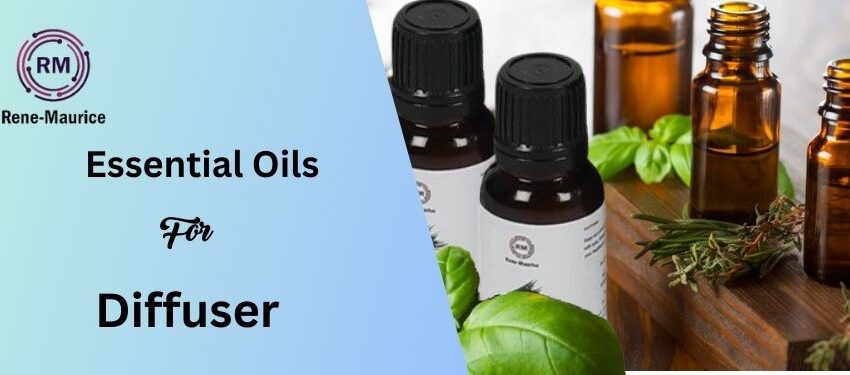
Are Essential Oils Good or Bad for Your Lungs
Are you curious about the buzz surrounding essential oils and their impact on lung health? Dive into this enlightening guide to discover the wonders, benefits, and potential risks of using essential oils for your respiratory well-being. Whether you’re a seasoned aromatherapy enthusiast or a newbie eager to explore natural remedies, this article will provide valuable insights into how essential oils can affect your lungs and what precautions to keep in mind for safe usage. Let’s unravel the mysteries of these aromatic elixirs together!
What are Essential Oils?
Essential oils are highly concentrated extracts derived from plants, flowers, and herbs through a process of steam distillation or cold pressing. These potent oils capture the essence and aroma of the botanical source, containing numerous beneficial compounds known for their therapeutic properties. From lavender to peppermint to eucalyptus, each essential oil boasts unique characteristics that can promote physical and emotional well-being.
When inhaled or applied topically, essential oils can stimulate the senses and trigger various physiological responses in the body. Whether used for aromatherapy, massage therapy, or skincare routines, these natural remedies have been valued for centuries across cultures worldwide. With their versatile applications and holistic approach to health maintenance, essential oils continue to gain popularity as alternative remedies in modern wellness practices.
It’s important to note that not all essential oils are created equal; quality matters when selecting products for optimal effectiveness. Be sure to choose pure, organic essential oils from reputable sources to ensure you’re reaping the full benefits of nature’s fragrant bounty.
Also Read:- What Is Aromatherapy And Its Benefits?
The Benefits of Essential Oils for Respiratory Health
Essential oils have gained popularity for their potential benefits in supporting respiratory health. Many essential oils like eucalyptus, peppermint, and tea tree are known for their ability to clear congestion, reduce inflammation, and support overall lung function. When diffused or inhaled, these oils can help open up the airways and provide relief from symptoms like coughing and wheezing.
In addition to their respiratory benefits, essential oils also possess antibacterial and antiviral properties that can help fight off infections that may affect the lungs. This makes them a natural alternative to chemical-laden decongestants or inhalers. Incorporating essential oils into your daily routine through methods like steam inhalation or topical application can promote healthier breathing patterns and improve overall lung function over time.
It’s important to note that while essential oils can offer respiratory support, they should not be used as a substitute for medical treatment in cases of severe respiratory conditions. Always consult with a healthcare professional before incorporating essential oils into your wellness routine to ensure they are safe for you to use based on your individual health needs.
Also Read:- Essential Oil Diffusers: A Beginner’s Guide
Risks of Using Essential Oils for Lung Health
When it comes to using essential oils for lung health, some risks need to be considered. One of the main concerns is the potential for respiratory irritation or allergic reactions, especially when oils are inhaled directly or used in high concentrations.
Certain essential oils can also trigger asthma symptoms or worsen existing respiratory conditions in some individuals. It’s crucial to be aware of any sensitivities you may have before incorporating these potent substances into your wellness routine.
Additionally, there is a risk of essential oil toxicity if ingested improperly or used excessively on the skin without dilution. Some oils can be harmful if not handled with care and proper knowledge of their properties.
To mitigate these risks, always dilute essential oils appropriately, follow recommended guidelines for use, and consider consulting a healthcare professional before introducing them into your regimen. Your lung health should always be the top priority when exploring natural remedies like essential oils.
How to Use Essential Oils Safely for Respiratory Health
When using essential oils for respiratory health, it is crucial to dilute them properly before applying them topically or inhaling them. Essential oils are highly concentrated and can be irritating to the lungs if used undiluted. Always follow recommended dilution ratios to ensure safe use.
An effective way to enjoy the benefits of essential oils for lung health is through aromatherapy. You can add a few drops of your chosen oil to a diffuser or humidifier and breathe in the aromatic mist. This method allows the oils to disperse into the air, promoting respiratory wellness without direct contact with your skin.
Another safe way to use essential oils for lung health is by steam inhalation. Add a few drops of oil to hot water, cover your head with a towel, and inhale the steam deeply for several minutes. This method helps open up congested airways and provides relief from respiratory discomfort.
Always remember to start with small amounts of essential oil when trying out new blends or methods of application. It’s important to listen to your body’s response and adjust accordingly if you experience any adverse effects. Stay informed about each oil’s specific properties and potential contraindications before incorporating them into your respiratory care routine.
Alternative Options for Lung Health
If you’re looking for alternatives to essential oils for lung health, there are several options to consider. One effective method is steam therapy using plain water or adding natural herbs like eucalyptus or peppermint. Inhaling the steam can help clear congestion and promote easier breathing.
Another alternative is salt therapy, also known as halotherapy, which involves inhaling salt-infused air. This practice has been using for centuries to reduce inflammation in the airways and improve respiratory conditions.
Regular exercise is crucial for maintaining healthy lungs. Activities like brisk walking, swimming, or yoga can strengthen your respiratory muscles and enhance lung capacity.
For those seeking a more holistic approach, acupuncture. And acupressure have been fin beneficial in improving lung function. And alleviating respiratory symptoms by promoting energy flow throughout the body.
Incorporating these alternative options into your routine can complement conventional treatments and support overall lung health naturally.
Conclusion and Final Thoughts
As you consider incorporating essential oils into your respiratory health routine, remember to prioritize safety and moderation.
Always research the specific oils you plan to use and consult with a healthcare professional if needed.
Experiment with different methods of using essential oils, such as diffusing or topical application, to find what works best for you.
Stay mindful of any potential sensitivities or allergies when introducing new oils into your regimen.
Remember that while essential oils can offer benefits for lung health, they are not a substitute for medical treatment if you have a respiratory condition.
Finding the right balance in utilizing essential oils for your lungs is key to reaping their potential advantages.
FAQs
Q: Can essential oils help with respiratory conditions like asthma or COPD?
A: Some essential oils have been shown to have potential benefits for managing symptoms of respiratory conditions like asthma or COPD. However, it’s important to consult with a healthcare professional before using essential oils as a treatment.
Q: Are there any essential oils that are particularly harmful to lung health?
A: Certain essential oils, especially when used in high concentrations or improperly, can be irritating to the lungs and airways. It’s crucial to research and use caution when selecting and using essential oils for respiratory health.
Q: How should I dilute essential oils for safe use on my lungs?
A: Essential oils should always be diluted with a carrier oil before applying them topically or inhaling them. A general rule of thumb is to use 1-3 drops of essential oil per teaspoon of carrier oil.
Q: Are there any specific ways I can incorporate essential oils into my daily routine for lung health?
A: You can add a few drops of certain essential oils like eucalyptus or peppermint to a bowl of hot water and inhale the steam, diffuse them in your living space, or apply diluted blends topically on your chest.
Remember, while some people may benefit from using essential oils for respiratory health, others may experience adverse reactions. It’s crucial to listen to your body and seek guidance from a healthcare professional if you have any concerns about using essential oils for lung health.


